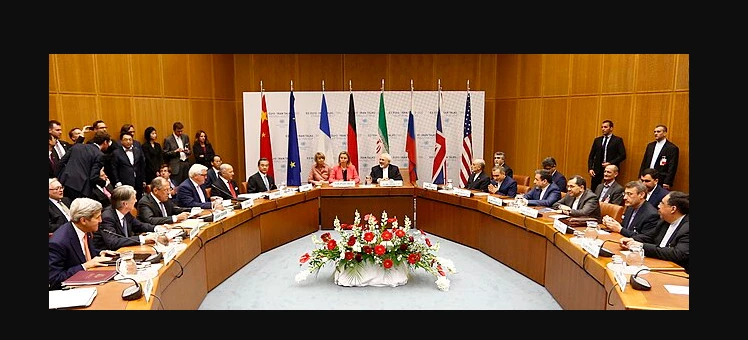Western powers shelve plans to censure Iran at UN nuclear meeting

Stay tuned with 24 News HD Android App

Western powers will not censure Iran over its lack of cooperation with the UN nuclear watchdog at its Board of Governors meeting from Monday for fear of aggravating geopolitical tensions, diplomats said.
Last week, the International Atomic Energy Agency (IAEA) said in confidential quarterly reports seen by AFP that Tehran's cooperation with the agency remained poor on several outstanding nuclear issues.
These include expanding its nuclear work, deactivating agency surveillance devices for monitoring Iran's nuclear programme, and barring senior inspectors.
The so-called E3 group -- France, Germany and the United Kingdom -- initially planned to censure Iran for its lack of cooperation with the agency and had started to draft a resolution, but in the end shelved their plans, diplomats said.
"The reports were very bad... There would be very good reasons (for a resolution) but because of the overall geopolitical picture with a lot of other dividing issues like the wars in Ukraine and Gaza, we decided it was not the right timing," a senior diplomat said.
"We need to maintain a strong and coherent board," the diplomat added.
The United States was not in favour of submitting a resolution critical of Iran for fear of further aggravating Middle East tensions ahead of presidential elections in November.
"We remain committed to a diplomatic process but there is really no prospect before 2025, with this enormous US election question hovering," another diplomat said.
Since November 2022, the board members have refrained from tabling a resolution.
On the first day of this week's Board of Governors meeting on Monday, IAEA chief Rafael Grossi reiterated his concerns about the potential risks of nuclear proliferation in the Middle East, while decrying "loose talk" about it.
Acting and former Iranian officials have recently boasted about the country's nuclear capabilities.
"I don't have any information that Iran is making a nuclear weapon. But I hear what they say and I ask questions," Grossi told a press conference, referring to those recent statements.
'Thresholds' met
Asked about Iran's nuclear weapons capability on February 12, the former chief of the Atomic Energy Organisation of Iran, Ali Akbar Salehi, claimed that the country had met "all the thresholds of nuclear science and technology".
"What does a car need? It needs a chassis, an engine, a steering wheel, a gearbox -- we have made them all, but each one for its own," he said.
Grossi on Monday insisted that he takes statements from Iranian officials "very seriously".
"Iran is the only country that does not have a nuclear weapon that is enriching at 60 percent and is accumulating uranium enriched at 60 percent," Grossi said.
Enriching uranium to up to 60 percent is a short step away from enriching to the 90 percent needed to build a bomb.
The threshold is well above the 3.67 percent permitted under the Iran nuclear deal.
Iran has gradually broken away from its commitments made under the nuclear deal after the United States unilaterally withdrew from it in 2018 under then president Donald Trump.
EU-mediated efforts to revive the deal, which would have brought Washington back on board and Iran back into compliance, collapsed in the summer of 2022.
